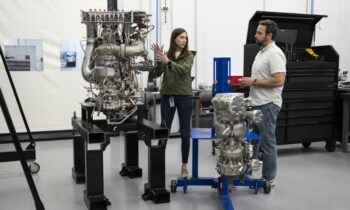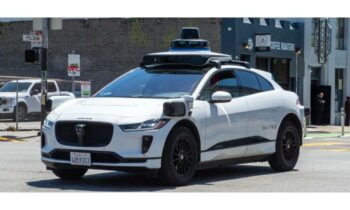Mini, the automaker, is developing mixed reality technology for its cars. With this system, drivers won’t even need to get out of their vehicles to fully immerse themselves in a digitally enhanced world.
In order to experience mixed reality, passengers in a new, all-electric Mini Cooper put on a VR/AR headset. Then, as a colorful, dynamic Mini VR world appears in the car’s windows, the surroundings effortlessly shift.
Thanks to external camera streams, the driver is fully aware of his physical surroundings even with the virtual scenery. This improves the ride’s aesthetic appeal and works in perfect harmony with the vehicle’s real-world navigation.
Mini’s Mixed Reality system is centered around a highly customized high-end PC. The specialized Mini VR World program is run on this. With the use of integrated car interfaces, synced acceleration sensors, precise headset tracking, customizable ambient sound, and synchronized acceleration sensors, this system produces an immersive and responsive driving environment that streams material straight to the VR headset.
This technology is now being used for a variety of testing and validation purposes, including user studies to enhance automated driving systems, as part of the BMW Group.
Passenger VR Experiences Linked with the Drive
While concentrating on entertainment, German firm Holoride is also developing in-car virtual reality technology. It introduced VR experiences that are synced with the driving experience to a few Audi vehicles in November 2022. The Holoride system allows users to interact with VR games, apps, and other content while driving by using an HTC Vive Flow.
Almost any car may become VR-ready using Holoride’s retrofit package, which was revealed in January 2023. The hardware, which has a suction cup to adhere to the windshield, resembles a small, black smart speaker. It transfers motion data from the vehicle to the virtual reality headset.
But in July 2023, Holoride was forced to declare for bankruptcy despite having creative concepts and well-known partners. Nils Wollny, the CEO and co-founder, said on LinkedIn that an investment round that was expected to be a sure thing collapsed at the last minute. He views the bankruptcy process as a chance to start again with new owners or investors.
Holoride’s VR aftermarket solution and Mini’s mixed reality system demonstrate how the auto industry is experimenting more and more with immersive technology to reimagine the driving experience. Whether and when such methods become widely accepted is still up in the air. Before widespread adoption is possible, safety issues and regulatory restrictions must be addressed in addition to technological obstacles.



